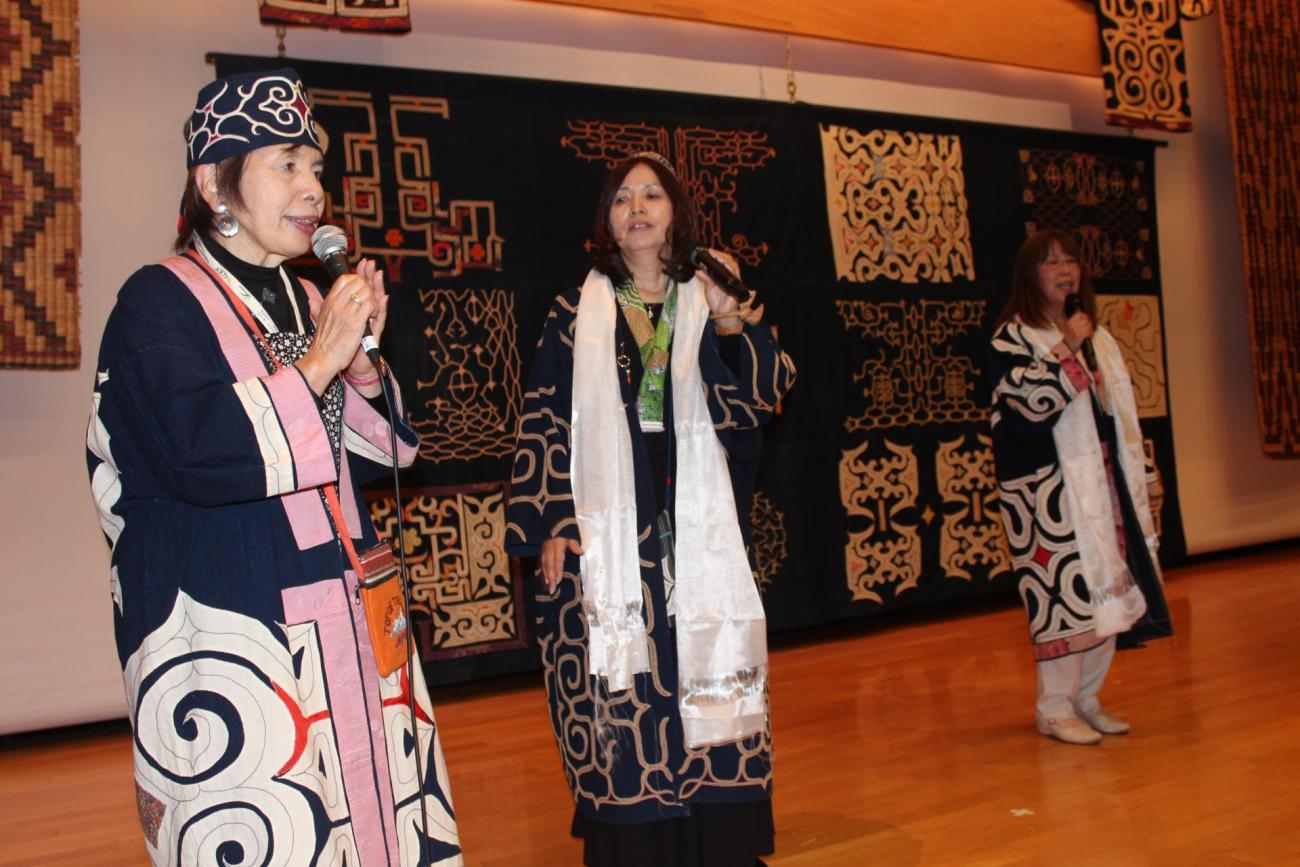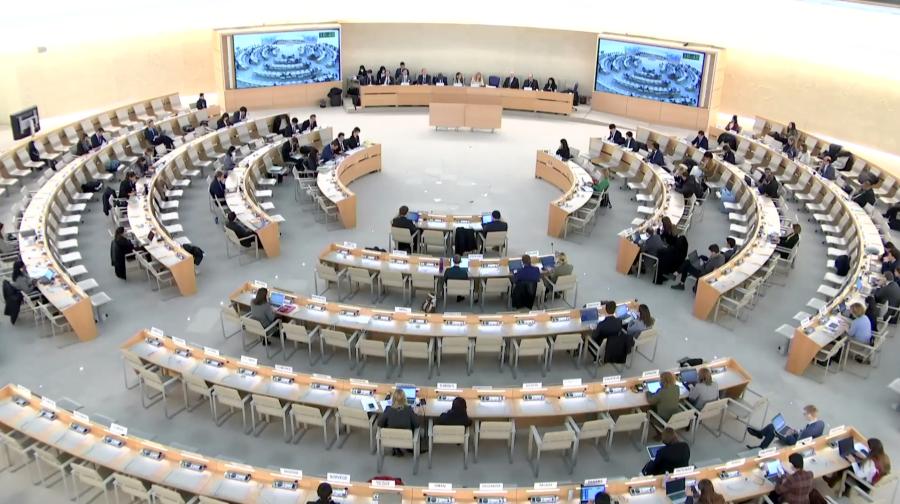
Cultural Survival, along with our colleague organizations Association of Comprehensive Studies for Independence of the Lew Chewan Peoples , All Okinawa Council for Human Rights, and Nirai Kanai nu Kai (Indigenous Peoples’ Organization for the Repatriation and Aerial Reburial of Ryukyuan Human Remains into original Ryukyuan Graves), recently submitted a report to the Universal Periodic Review (UPR) on the violation of Indigenous Peoples’ rights in Japan. The UN General Assembly established the Universal Periodic Review along with the United Nations Human Rights Council in 2006. Its purpose is to review the human rights records of the 193 UN member states, addressing the states’ obligations to respect, protect, and fulfill human rights, and to provide technical assistance to the states being reviewed. The 193 member states are divided into groups that alternate review cycles. The report was submitted for the 4th Cycle of Universal Periodic Review of Japan as part of the 42nd Session of the Human Rights Council. Our stakeholder report will assist the UPR Working Group in reviewing the Japanese State in accordance with its obligations to the international human rights treaties and mechanisms it has ratified and endorsed such as the UN Declaration on the Rights of Indigenous Peoples (UNDRIP).
The report, titled Observations on the State of Indigenous Rights in Japan, focuses on the two primary Indigenous Peoples in Japan. The Ainu are from the northern region of the Japanese archipelago, particularly Hokkaido, which is considered to be their ancestral territory, while the Ryukyuans, known as Okinawan who identify themselves also as Lewchewans or Uchinanchu, mostly live in the southernmost regions of Ryukyu/Okinawa and Kagoshima Islands of Japan. The report highlights ongoing human rights violations, including violation of rights to self-determination; violation of rights to ancestral lands and territories; violations of fishing and subsistence rights; violations of Indigenous Peoples’ rights in Japanese law and policy; violations of Indigenous Peoples’ rights to ancestral remains; and violations of Indigenous women’s rights.
The report notes that while the government of Japan has made some strides in addressing historical injustices including marginalization and discrimination against Ainu Indigenous Peoples, it has yet to take any efforts to address such injustices faced by Ryukyuan/Okinawan Indigenous Peoples nor does it consider them as Indigenous Peoples of Japan. Moreover, the Japanese government and the United States military have been using the traditional lands and territories of Ryukyuans without their Free, Prior, and Informed Consent. The Ainu, Ryukyuan/Okinawan, and other ethnic minorities have undergone similar experiences of historical injustices such as suppression of their socio-cultural practices and dispossession of their ancestral lands and territories. Indigenous Peoples in Japan continue to suffer greater rates of discrimination and poverty and lower rates of academic success compared to non-Indigenous Peoples. There is no meaningful consultation for promotion and protection of their right to self-determination including their language, history, and culture.
The report urges UN member states to make the following recommendations to Japan:
- Ratify ILO Convention Concerning Indigenous and Tribal Peoples in Independent Countries, 1989 or ILO Convention No. 169.
- Recognize and protect Indigenous Peoples’ right to self-determination including their right to own, develop, control and use their communal lands, territories and resources and where they have been otherwise inhabited or used, with their Free, Prior and Informed Consent, and take necessary steps to return their lands and territories with reparation.
- Recognize Ryukyu/Okinawa People as Indigenous Peoples and take appropriate measures to ensure their right to traditional land and natural resources and to meaningfully participate in decision-making matters which would affect their rights to language, history and culture.
- Strengthen measures to respect and fulfill the rights of the Ainu and Ryukyu Indigenous Peoples in regards to their traditional land and territories and their right to Free, Prior and Informed Consent, also ensuring the right of other groups such as Burakumins — to fully enjoy their economic, social and cultural rights.
- Apologize publicly in good faith, acknowledging the centuries of discrimination and assimilation policies towards Ainu and Ryukyu Indigenous Peoples.
- Conduct meaningful dialogue with Ryukyu Peoples regarding the US military bases in Okinawa.
- Take appropriate measures to eliminate all forms of discrimination against Ainu and Ryukyu Indigenous Peoples and conduct up-to-date surveys, including disaggregated data, with the meaningful participation of Ainu and Ryukyu Indigenous Peoples about their educational and socio-economic status as a step towards ending the socioeconomic and educational gaps and other inequities between Indigenous and non-Indigenous Peoples of Japan.
- Ensure access to and repatriation of ceremonial objects and human remains to the Ainu and Ryukyu Indigenous Peoples through development of fair, transparent and effective mechanisms with meaningful consultation and participation of the respective Indigenous Peoples.
- Invite the UN Special Rapporteur on the Rights of Indigenous Peoples to visit Japan.
- Create a national action plan on implementing Indigenous Peoples’ rights based on the World Conference on Indigenous Peoples’ Outcome Document.
Top photo: Ainu Women's Association, Menoko Mosmos, performing at the Indigenous Terra Madre Asia and Pan Pacific conference,
held October 11-14, 2019, in Ainu Moshir, the land of the Ainu Peoples in Hokkaido, Japan.

